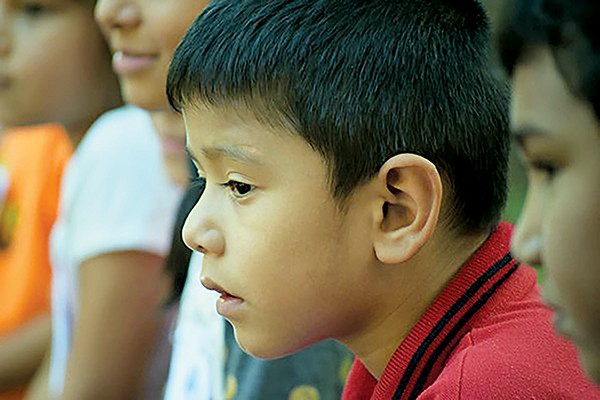Three weeks ago, I sat down with three inspiring folks in a panel on activism and advocacy. Chris Sanders had driven in from Nashville to represent the Tennessee Equality Project. Shahidah Jones from the Official Black Lives Matter Memphis Chapter sat to my right, and next to her was Justin Davis from the Memphis Bus Riders Union.
It felt like home, as if we were just about to have a regular conversation, the only difference being the 50 or so students sitting in rows in front of us and the fact that we were sitting next to each other instead of across a table or in a living room. Home, of course, is relative. It was not the physical elements of that space that made it home but rather the shared ánimo (energy) that I felt being in conversation with them and the students in the room, all of whom are involved in community service.
 Latino Memphis
Latino Memphis
Everyone should have a reason to hope.
We covered a range of topics. Mostly, we defined activism and advocacy and were speaking on privilege, allyship, and sustainable change in order to problematize community service — because community service, particularly in higher education institutions, is often over-simplified. In other words, we are not grappling with historical and systemic conditions that create, and most importantly, sustain, inequity, but rather we engage in a short-term exchange of services through which, typically, while not intentionally, we as outsiders of xyz community are receiving greater benefits through knowledge and/or experience. All of that is to say, it was an incredible conversation that could have gone on for hours, especially given the breadth of experiences we could have pulled from through our various, intersecting backgrounds in community organizing.
One of the things that I left with that evening, that continues to linger in my mind, was this question that one of the students presented to us: What gives you hope?
I wasn’t surprised by this question. I even think that I expected it. It’s not the first time I’ve heard it asked at a panel or guest speaker event, and I would venture to say that it won’t be the last. We get asked about hope a lot. By “we,” I mean folks like the ones in the panel who are queer folks, black and brown folks, women, queer women, queer women of color, queer women of color who are immigrants, etc. The combinations of identities in just our four-person panel are probably endless if we go further into experiences shaped by race, ethnicity, gender, sex, sexual orientation, ability, and so on. But I list just a few to offer a glimpse into the intersectionality of identities that shape our experiences and thus shape the work we do in fighting against dominant systems that negate if not erase these experiences.
I think that’s why that student asked this question about hope. How do we keep pushing when there are larger structures, laws, and policies that continue to qualify structural racism and gender violence and limit our economic and physical mobility? The student didn’t add that much to the question, but that is what went on in my head and what I believe went on, if not in some form or variation, through the minds of Chris, Shahidah, and Justin.
We sat on that question for a little bit longer than the rest. The thing is, there’s no simple answer. Hope is complicated. It’s not as if we exchange our cup of coffee for a cup of hope each morning and we’re good to go. If anything, I would say that survival kicks in every hour, every day more than hope. When we lobby in Nashville, for example, it’s not because we’re passionate about politics. We understand the immediate effects that politics and policy have on the lives of people, and so we will travel miles to address immoral and unjust laws.
For the past month, both of my parents, along with about 50 volunteers in the Migration Is Beautiful group, have been getting up as early as 4 a.m. to meet refugees who have been recently released from U.S. Immigration and Customs Enforcement detention centers. Each day, they’re gathering and organizing supplies and resources for individuals, adults, families, and children who come into Memphis on Greyhound buses, many who haven’t had a real meal in days and are ill-equipped for cold temperatures. Folks in the Migration Is Beautiful group are responding to a crisis created by unstable refugee and asylum policies with no foreseeable end in sight.
While hope motivates many, the immediate response to this crisis is to offer support as much as possible for people to make it through in a healthy and safe way to the next city in their stops.
These action and response movements that exist locally, nationally, and internationally aren’t rooted as simply passions, extracurricular activities, or hobbies for people who are in some way connected to communities that consistently are under attack. This is about surviving this day in order to see the next. This is the ánimo that carries us.
Aylen Mercado is a brown, queer, Latinx chingona and Memphian pursuing an Urban Studies and Latin American and Latinx Studies degree at Rhodes College.